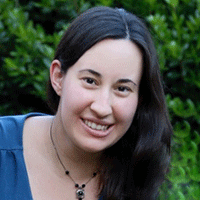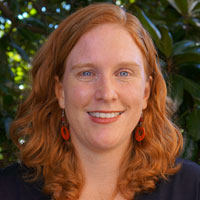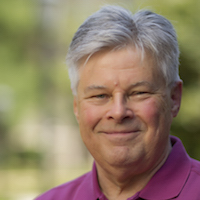Study examines peer support narratives written by cancer survivors for patients currently undergoing treatment
June 8, 2016
A new study by researchers at The University of North Carolina at Chapel Hill may guide the development of methods that will help caregivers and peer counselors provide effective advice to patients undergoing an arduous cancer treatment without undermining the patients’ coping efforts or worsening their emotional distress.
Yael Symes, MSPH, doctoral student in health behavior at the UNC Gillings School of Global Public Health, is first author of the study, “Advice to Patients Undergoing Stem Cell Transplant: Content Analysis of Survivor Peer Support Narratives,” published online May 29 in the Journal of Health Psychology.
Faculty co-authors in the Gillings School’s Department of Health Behavior are Christine Rini, PhD, research associate professor; Edwin Fisher, PhD, professor; and Clare Barrington, PhD, associate professor. Rini also is a member of the UNC Lineberger Comprehensive Cancer Center.
The study is a qualitative analysis of advice offered by survivors of hematopoietic stem cell transplant (SCT), a long, painful and often life-threatening procedure to save the lives of people with hematologic (blood) cancer, to patients currently undergoing the treatment.
Much research has shown that patients benefit from learning about the ways others have experienced the same illness, treatment and recovery. Some studies, however, suggest that information shared by survivors might be perceived as misleading, confusing or distressing to someone currently engaged in a difficult treatment. The current study had two aims – to describe the types of advice that SCT survivors shared with SCT recipients and to evaluate how survivors differed in perceiving the helpfulness of advice they received and wrote about.
Symes and colleagues analyzed written narratives by 59 survivors of stem cell transplant, ages 19 to 79 years, mostly white, college-educated women, who had undergone SCT within the two years prior to the study. The average length of their narratives was 569 words.
Nine frequently shared categories of advice emerged, including “Be your own advocate,” “Have someone you can rely on,” “Show compassion toward others,” “Think positive,” “Take things one step at a time,” “Identify things that bring you peace,” “Exercise,” “Follow guidelines,” and “It gets better.”
Thirty-six participants (61 percent) expressed the need for transplant recipients to advocate for themselves by asking questions, getting second opinions, and asking for help, when needed.
Thirty-one (52.5 percent) described how critical others were to their well-being during treatment and recovery, notably online support groups. Seven survivors (11.9 percent) described being disappointed by friends who withdraw from relationships because of fear or confusion about how to help.
Four study participants (6.8 percent) advised that thinking about others can provide a distraction to one’s own distress and can foster mutual support.
Thirty (50.8 percent) said avoiding negativity contributed to their survival.
Eighteen (30.5 percent) advised breaking down daunting tasks into smaller steps.
Twenty (33.9 percent) wrote about the importance of finding happiness wherever one can. Yoga, music, art and other “things that bring one peace” helped survivors cope during treatment and recovery.
Seven (11.9 percent) advised others to exercise as much as possible to keep busy and promote recovery.
Nine survivors (15.3 percent) explained that patients have a better chance of recovery when they follow providers’ guidelines about hygiene, diet, medications and follow-up appointments.
Twelve (20.3 percent) described how time brought healing and an end to feelings of frustration and sadness.
Participants described and appeared to value three of the categories – be your own advocate, have someone to rely on and think positive – with variability.
Whereas some had preferred to know all details about options and procedures so as to feel control over the situation, some wanted to avoid stress-inducing information and gave decision-making control to physicians. The study suggests that the amount and kinds of information provided to those preparing to undergo SCT should be tailored individually.
Despite how much patients appreciated family support, they noted that peer support from those who had shared or were sharing the SCT experience made them feel less alone. Some survivors said that advice to “rely on others” is a problem for those with inadequate social networks or who feel stressed and scared about what to do.
Although it has been argued that optimism is beneficial for cancer survivors’ well-being, many experiencing a serious illness do not want to present a happy demeanor when they are feeling lost or helpless. Insisting that patients be optimistic also can cause them to feel guilty for not being “positive enough” if their prognosis is not a good one.
Other co-authors are Jane Austin, PhD, professor of psychology at William Paterson University, in Wayne, N.J., and Lisa M. Wu, PhD, assistant professor of medical social sciences at Northwestern University’s Feinberg School of Medicine.
Share
Gillings School of Global Public Health contact: David Pesci, director of communications, (919) 962-2600 or dpesci@unc.edu




